 |
Fairchild Channel F
| Type |
Console |
Developer |
Fairchild Semiconductors, Zircon |
| Release Date |
1976-Aug |
Region(s) |
North America, Europe, Japan |
| Initial Price |
$169 USD |
Games Released |
26 |
|
 |
 DW FACTS DW FACTS
by Dark Watcher |
With so many "Pong" clones on the market at this time, the Fairchild Channel F was a breath of fresh air. The Channel F was the
first programmable cartridge based video game console. It was developed by Fairchild Semiconductors and released in 1976.
With only 26 games, the console's success was very short.
FACT: Not only did Fairchild Semiconductors produce the first cart based system, they were the first to use a
microprocessor for use in a videogame console. Also two of their employees became co-founders of a company called
"Intel"...thank your lucky Pentium. The Channel F was was also the first videogame console to utilize a pause
function, via the "Hold" button on the console that would freeze the game (or even speed it up). |
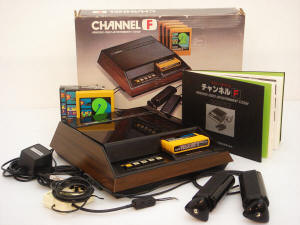
|
 MODELS MODELS
Officially licensed releases |
Fairchild Channel F
United States (1976) |
Zircon Channel F System 2
United States (1978) |
 |
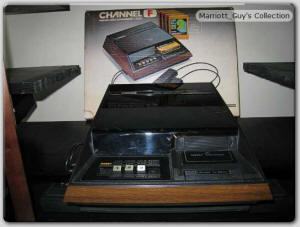 |
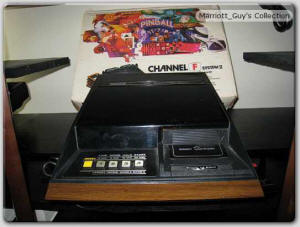 |
|
Barco Challenger
(Belgium 1978)
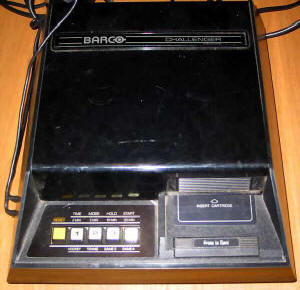 |
Dumont Channel F
(Italy 1978)
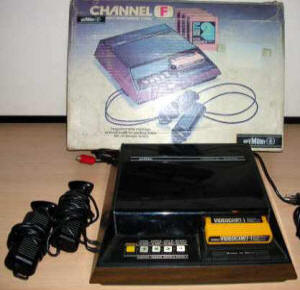 |
Luxor TV-Datorspel
(Sweden 1978)
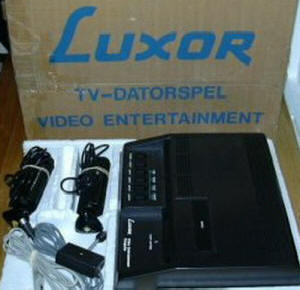 |
Grandstand VEC
(Great Britain 1976)
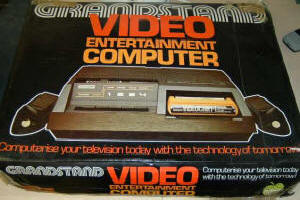 |
Grandstand VEC II
(Great Britain 1979)
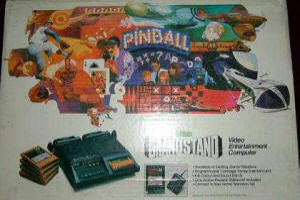 |
ITT Telematch-Processor
(Germany 1978)
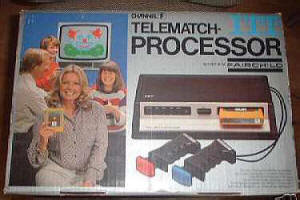 |
Ingelen Telematch Processor
(Austria 1978)
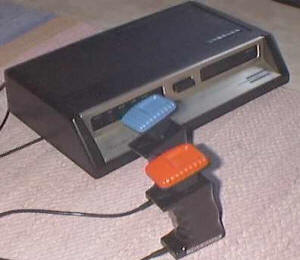 |
Saba VideoPlay 2
(Italy \ Germany 1979)
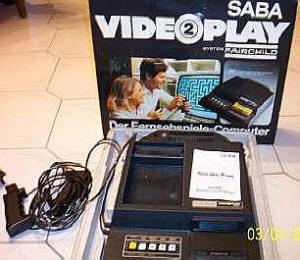 |
Normende Color Teleplay
(Germany 1979)
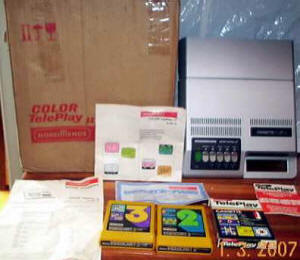 |
Emerson Channel F
(Italy 1978)
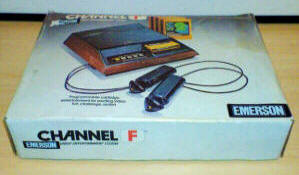 |
Saba VideoPlay
(Italy \ Germany 1978)
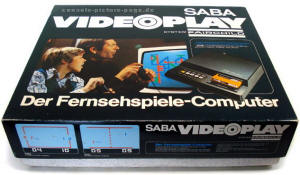 |
|
|
Some pictures courtesy of our good friend Adrian Scheel. |
|
|
Grandstand VES Technical Pictures |
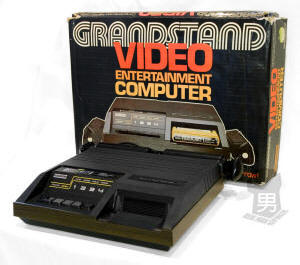 |
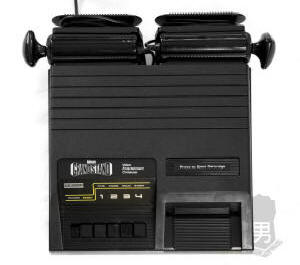 |
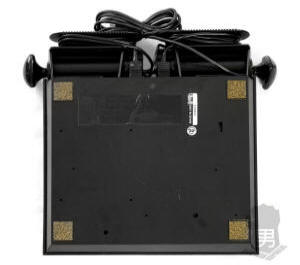 |
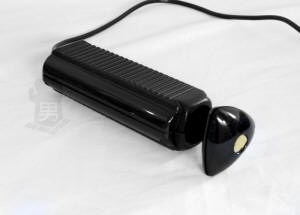 |
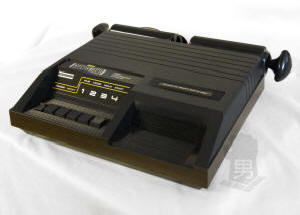 |
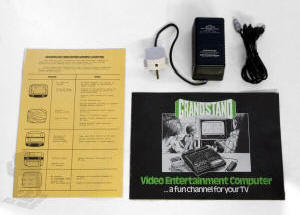 |
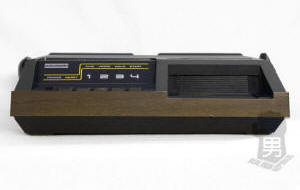 |
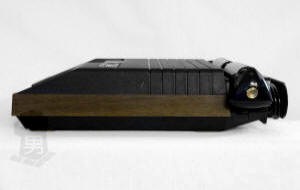 |
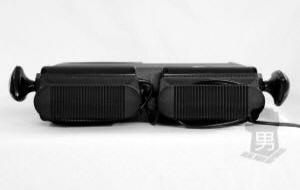 |
| Pictures courtesy of Charles Lee |
|
 CLONES CLONES
Non-licensed hardware releases |
No clones were released for this system. This system was licensed to just about anyone who had a soldiering gun.
|
 CONSOLE RATINGS CONSOLE RATINGS
by Marriott_Guy |
|
Consoles are rated based upon the available technology at the time of its release. A 10 point scale is utilized, with 10 being
excellent. Ratings are based upon my experience with the original Fairchild Channel F and the Channel F System 2
by Zircon. |
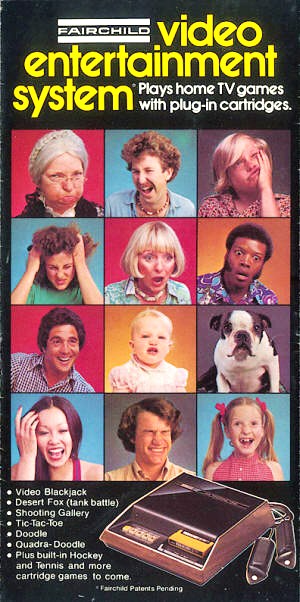
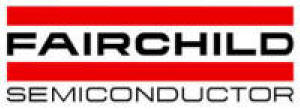  |
| CRITERIA |
RATING |
NOTES & COMMENTS |
| Console Design |
05 |
The design of the Channel F
chassis is all about functionality. The front system buttons are large and easily accessible. The plastic housing
that provides cover for the controllers is constructed of a rather thin plastic and is prone to damage. |
| Console Durability |
06 |
The first model featured
hardwired controllers, which are prone to damage where the wires connect at the base of the console. The System 2 had
detachable controllers which are more dependable. The system itself is durable, with the exception of the smoke-amber
plastic top cover which can be easily cracked. |
| Controllers |
05 |
I am not a big fan of
pistol-grip controllers, and the Fairchild Channel F did nothing to change my mind in this area. The rotating knob has
an odd triangle shaped top which is difficult to navigate. |
| Graphics |
07 |
Though the color palette is
limited to 8 colors, the Channel F delivers surprisingly smooth graphics without a great deal of screen flicker. |
| Audio |
03 |
The first model generated sound
through an internal speaker, which as you can imagine sounds rather poor. The System 2 provided audio out to your
television, which was a huge improvement. |
| Media |
08 |
Being the pioneer of
programmable video game cartridges, Fairchild truly embraced this new medium and was a pioneer. |
| Game Library |
06 |
Though only 26 games were
released for this console, the Channel F has a nice variety of genres to chose from. |
| Gamer Value |
05 |
The Channel F system and games
are more expensive to acquire compared to its primary competitor, the Atari 2600. Though their are some great titles
within its library, it is difficult to justify the additional cost when comparable titles for the 2600 are 1/10 the cost. |
| Collector Value |
08 |
Due to being the first
programmable video game system that was ever released, any collector needs to have the Channel F within their arsenal of
systems. |
|
 FORMAT, PACKAGING & GENERAL INFO FORMAT, PACKAGING & GENERAL INFO
Interesting facts on software for this system |
In addition to the standard game title, Fairchild utilized a numbering system to label their game. This method would
eventually be duplicated in many systems during the late 1970s and early 1980s.
The boxes are constructed of a very thick
cardboard and hold up remarkably well through time. The large game cartridges are also very durable, with front label
graphics that mirror the design of the cover art.
There were many variations in both the cartridge design as well as the boxes for games released for the Fairchild Channel F.
Games were also released in Europe as VideoPlay cartridges under the Saba brand.
Acquiring games is not difficult due to the durable construction of both the cartridge and the carton. Games created by
Zircon are definitely the best that the system has to offer. As you can imagine, these games are rather expensive. |
|
|
Sample Game Play |
|
Fairchild Channel F Game Cartridges
 |
| |
 SCREENSHOTS SCREENSHOTS
Captured in-game images, boxes and cartridges |
VIDEOCART-1
Tic-Tac-Toe \ Shooting
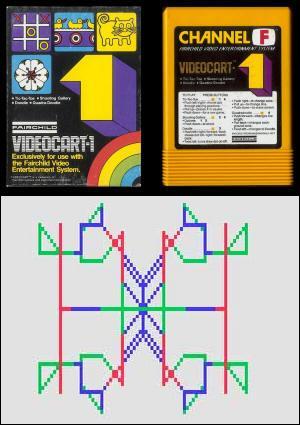 |
VIDEOCART-2
Desert Fox \ Shooting Gallery
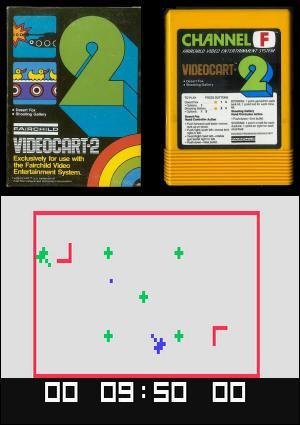 |
VIDEOCART-3
Video Blackjack
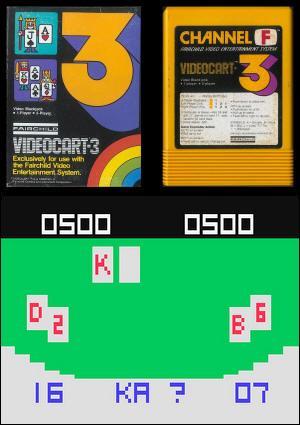 |
VIDEOCART-4
Spitfire
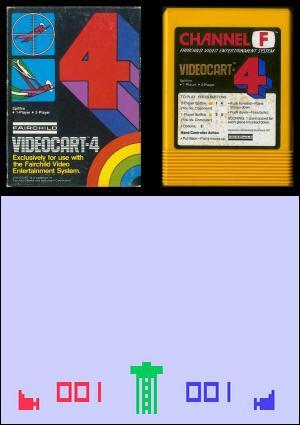 |
VIDEOCART-5
Space War
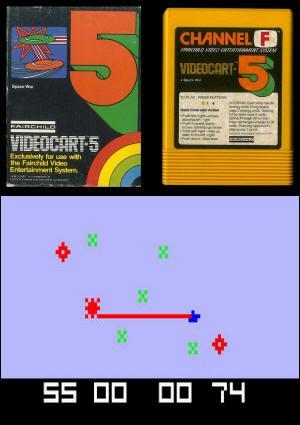 |
VIDEOCART-6
Math Quiz I
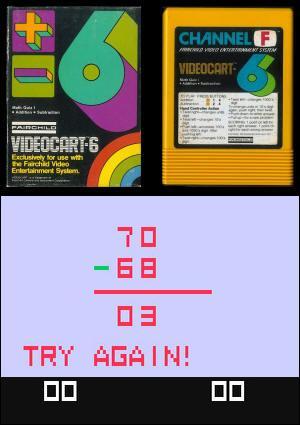 |
VIDEOCART-7
Math Quiz II
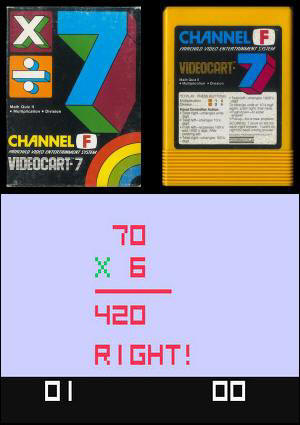 |
VIDEOCART-8
Magic Numbers
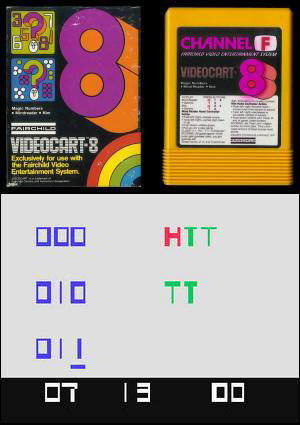 |
VIDEOCART-9
Drag Strip
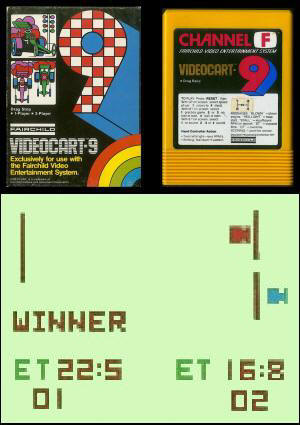 |
VIDEOCART-10
Maze \ Jailbreak
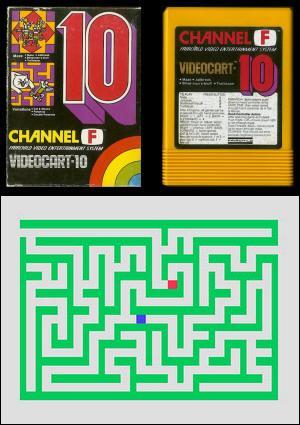 |
VIDEOCART-11
Backgammon \ Acey-Deucey
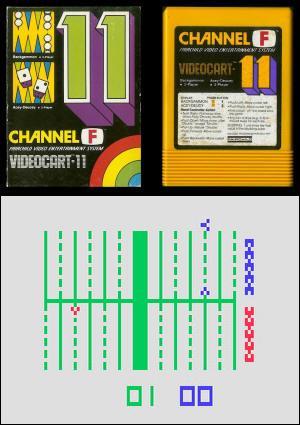 |
VIDEOCART-12
Baseball
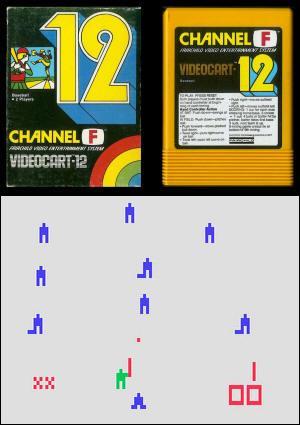 |
VIDEOCART-13
Robot War \ Torpedo Alley
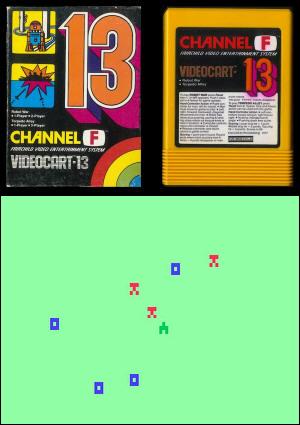 |
VIDEOCART-14
Sonar Search
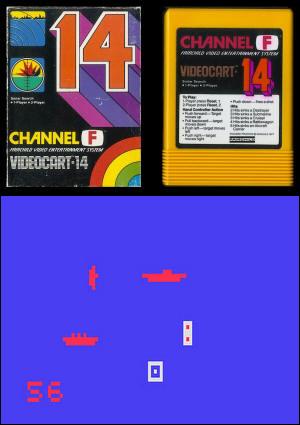 |
VIDEOCART-15
Memory Match
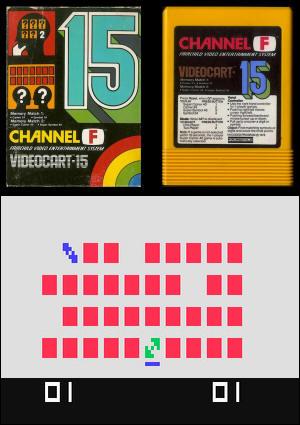 |
VIDEOCART-16
Dodge-It
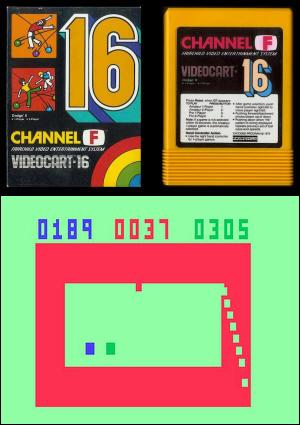 |
VIDEOCART-17
Pinball Challenge
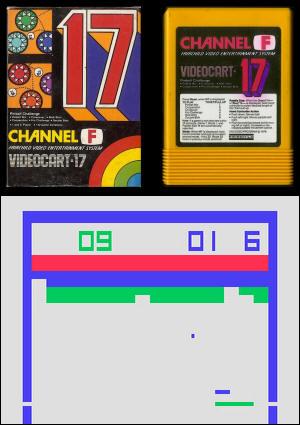 |
VIDEOCART-18
Hangman
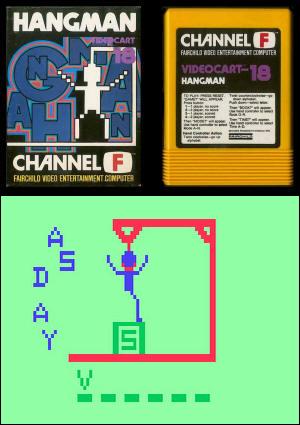 |
VIDEOCART-19
Checkers
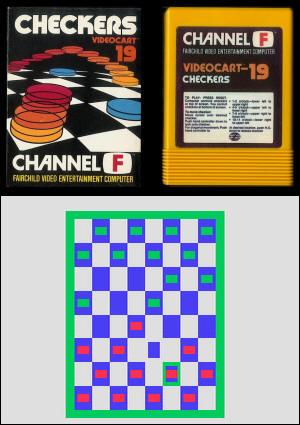 |
VIDEOCART-20
Video Whizball
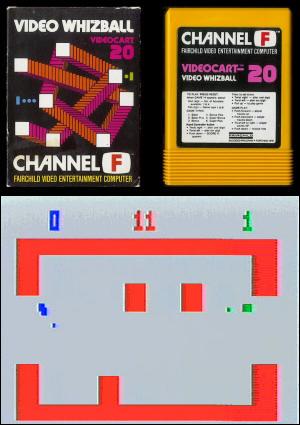 |
VIDEOCART-21
Bowling
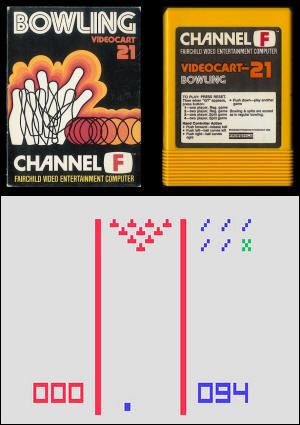 |
VIDEOCART-22
Slot Machine
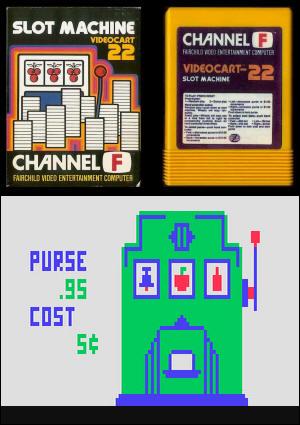 |
VIDEOCART-23
Galactic Space Wars
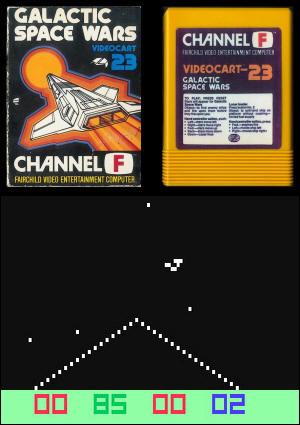 |
VIDEOCART-24
Pro-Football
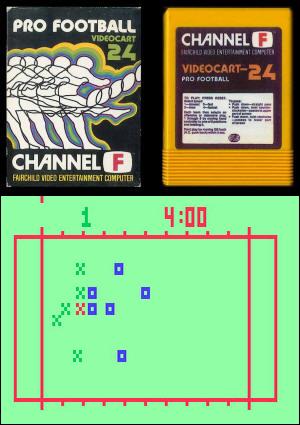 |
VIDEOCART-25
Casino Poker
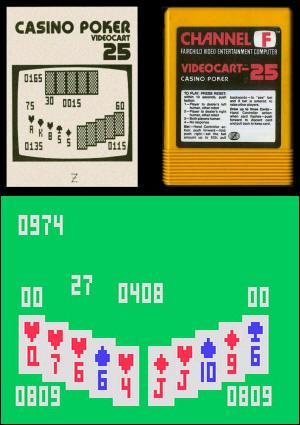 |
VIDEOCART-26
Alien Invasion
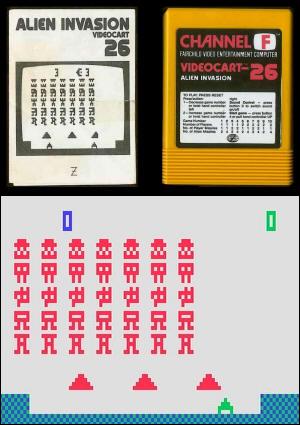
|
|
|
|
 EMULATION EMULATION
First and third party system emulators |
MESS
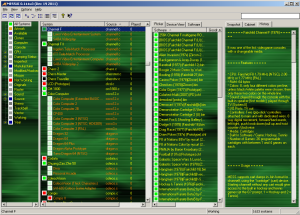 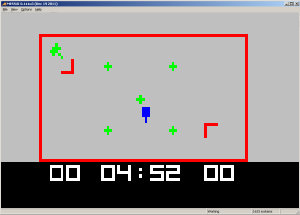
MESS (Multi-Emulator Super System) is a DOS based emulator capable of running many
systems including this one. It has a Windows based GUI
and is extremely user friendly.
|
 SPECS & MANUALS SPECS & MANUALS
For the hardware enthusiasts out there - all the detail you\we love. |
| Processor Type |
Processor
Speed |
Other
Processor Information |
RAM \ Video RAM |
| Fairchild F8 (8-bit) |
1.79 MHz |
None |
64 bytes \ 2 KB |
|
Screen Resolution
|
Color Palette
|
Polygons \ Sprites
|
Audio |
| 128 x 64 |
Eight (8) colors |
N\A |
4 Channel Stereo
(internally generated) |
|
Media Format
|
Media Capacity
|
Games Released
|
Other Supported Formats
|
|
Cartridge |
4 KB |
26 |
None |
|
Internal Storage
|
External \ Removable Storage
|
Game Controllers
|
Other Game \ Peripheral Devices
|
|
None |
None |
Pistol Controller (8-way
directional) |
None |
| Controller Ports |
Network Ports |
Other Ports
|
Audio \ Video
|
|
Two (hardwired) |
None |
None |
RF |
|
Power Supply - External
|
Other Outputs
|
Other Details \ Notes
|
Input: AC 120V 60 Hz
Output: DC 18V 12VA |
None |
The second
version, System 2, featured audio output through the television, detachable controllers and a redesigned casing (see
pictures below). |
| Manuals |
|
Fairchild Channel F Owners Manual (PDF) - 1.60 MB |
|
 OTHER
MEDIA OTHER
MEDIA
Peripherals, Promotions, Commercials, Brochures, Etc. |
| Fairchild Channel F on Television |
|
|
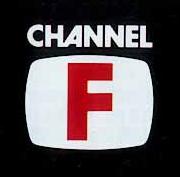
|
|
|
| Brochures for the Channel F and the System II by Zircon |
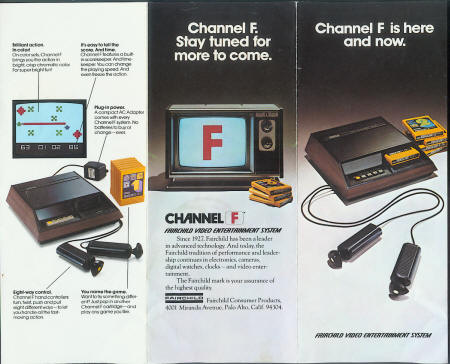 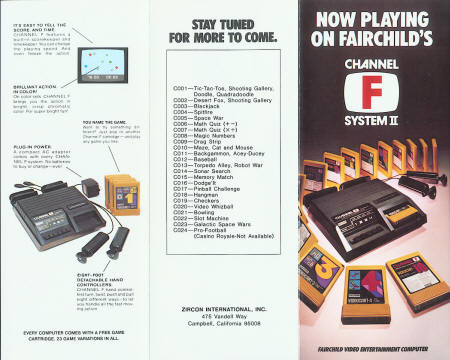 |
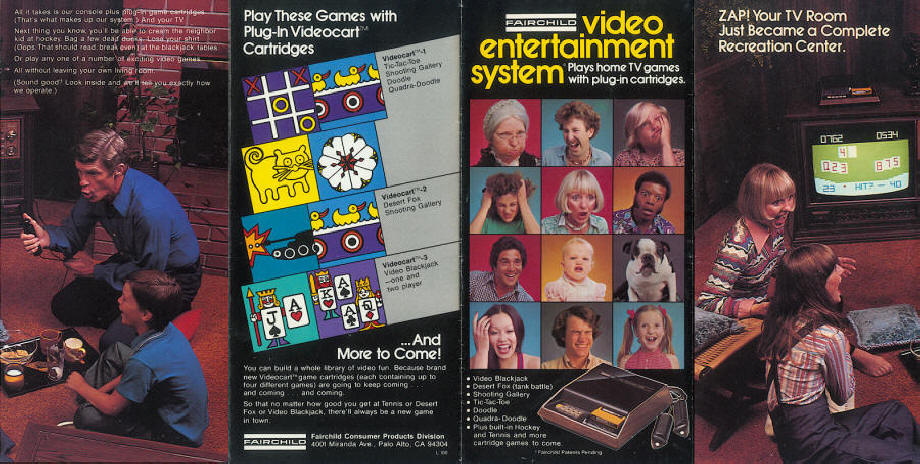 |
Courtesy of
Fndcollectables
|
 WEB RESOURCES WEB RESOURCES
Highly recommended websites for this system |
Fndcollectables

Great historical piece on the Channel F
|
|
|
|







 2010s - NOTES
2010s - NOTES


 MODELS
MODELS






















 CLONES
CLONES CONSOLE RATINGS
CONSOLE RATINGS

 FORMAT, PACKAGING & GENERAL INFO
FORMAT, PACKAGING & GENERAL INFO


























 EMULATION
EMULATION

 SPECS & MANUALS
SPECS & MANUALS OTHER
MEDIA
OTHER
MEDIA



 WEB RESOURCES
WEB RESOURCES
 DISCUSS
DISCUSS